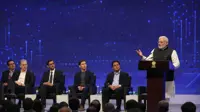The Competition Commission of India (CCI) has passed its final order against Maruti Suzuki India Limited (MSIL) for indulging in anti-competitive conduct of Resale Price Maintenance (RPM) in the passenger vehicle segment by way of implementing Discount Control Policy vis-à-vis dealers, and accordingly, imposed a penalty of Rs200 crore upon MSIL, besides passing a cease-and-desist order.
CCI found that MSIL had an agreement with its dealers whereby the dealers were restrained from offering discounts to the customers beyond those prescribed by MSIL.
In other words, MSIL had a ‘Discount Control Policy’ in place for its dealers whereby the dealers were discouraged from giving extra discounts, freebies, etc to the consumers beyond what were permitted by MSIL. If a dealer wanted to offer additional discounts, prior approval of MSIL was mandatory. Any dealer found violating such Discount Control Policy was threatened with imposition of penalty, not only upon the dealership, but also upon its individual persons, including Direct Sales Executive, Regional Manager, Showroom Manager, Team Leader, etc.
To enforce the Discount Control Policy, MSIL appointed Mystery Shopping Agencies (MSAs) who used to pose as customers to MSIL dealerships to find out if any additional discounts were being offered to customers. If found offered, the MSA would report to MSIL management with proof (audio/ video recording) who, in turn, would send an e-mail to the errant dealership with a ‘Mystery Shopping Audit Report’, confronting them with the additional discount offered and asking for clarification. If clarification was not offered by the dealership to the satisfaction of MSIL, penalty would be imposed on the dealership and its employees, accompanied in some cases, by the threat of stopping supplies. MSIL would even dictate to the dealership where the penalty had to be deposited and utilisation of the penalty amount was also done as per the diktats of MSIL.
CCI has found that MSIL not only imposed the Discount Control Policy on its dealers, but also monitored and enforced the same by monitoring dealers through MSAs, imposing penalties on them and threatening strict action like stoppage of supply, collecting and recovering penalty, and utilisation of the same. Hence, such conduct of MSIL, which resulted in appreciable adverse effect on competition within India, was found by CCI to be in contravention of the provisions of Section 3(4)(e) read with Section 3(1) of the Competition Act, 2002.




















